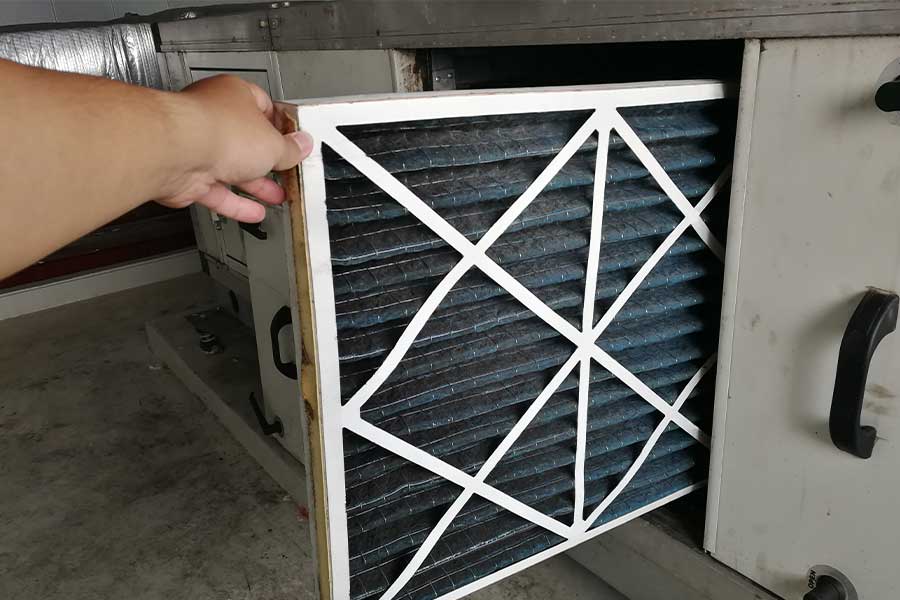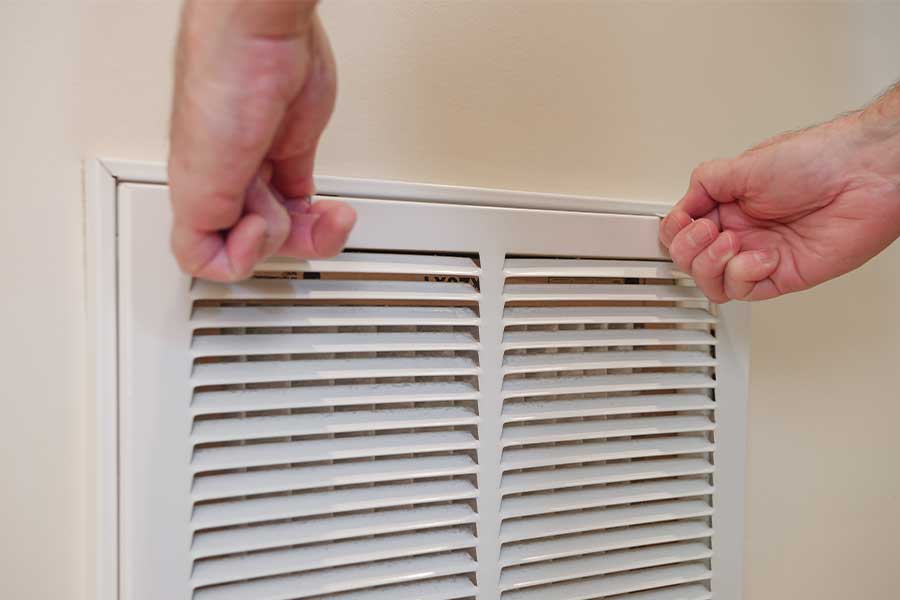Imagine a hot summer day in Littleton, CO, when your AC struggles to keep your home cool. If you’ve noticed reduced airflow or higher energy bills lately, it might be time to check your AC filter. A clogged filter can strain your system and affect your indoor air quality. But how can you be sure it’s time for a change? Let’s explore the signs you should watch for.
Understanding the Importance of AC Filters
When you think about your home’s comfort, don’t overlook the importance of AC filters. They play a vital role in maintaining indoor air quality and system efficiency.
A clean filter traps dust, pollen, and allergens, ensuring you breathe easier, especially during peak allergy seasons. When your filter’s clogged, your AC has to work harder, leading to increased energy bills and potentially shortening the unit’s lifespan.
Regularly changing your AC filter can enhance your system’s performance and prolong its life. It also contributes to a healthier environment for you and your family. Additionally, a well-maintained filter can reduce the risk of system breakdowns, saving you from costly repairs down the line. By prioritizing your AC filters, you’re investing in long-term comfort and peace of mind. Furthermore, regular air filter replacement is a simple maintenance task that significantly impacts your HVAC system’s efficiency.
Signs Your AC Filter Needs Changing
How can you tell when it’s time to change your AC filter? One of the most obvious signs is reduced airflow. If you notice your AC isn’t cooling your home as effectively, it might be struggling due to a clogged filter.
Another indicator is increased energy bills. A dirty filter forces your system to work harder, leading to higher costs.
Additionally, if you see dust accumulating around your vents or notice a musty smell when the AC runs, it’s likely time for a change.
You might also experience more allergy symptoms; a dirty filter can’t trap allergens effectively.
Finally, check the filter itself—if it’s visibly dirty or discolored, it’s time to replace it.
Regularly changing your AC filter contributes to improving indoor air quality, ensuring your home remains a healthy environment. Keeping an eye on these signs will guarantee your AC runs efficiently and maintains air quality in your home. Regular maintenance helps you avoid costly repairs down the line.
How Often Should You Change Your Filter?
Wondering how often you should change your AC filter? It generally depends on the type of filter you use and your home environment.
For standard fiberglass filters, you’ll want to replace them every 1 to 3 months. If you have a pleated filter, changing it every 3 to 6 months is ideal.
However, if you have pets, allergies, or live in a dusty area, consider changing your filter more frequently—perhaps monthly.
Don’t forget to check your filter regularly, even if it’s not time for a change yet. A quick visual inspection can help you determine if it’s clogged with dust and debris. Regular filter changes are essential for maintaining HVAC system efficiency and ensuring optimal air quality in your home.
Impact of a Dirty Filter on Your HVAC System
A dirty filter can greatly impact your HVAC system’s performance, causing it to work harder than necessary.
When the filter’s clogged with dust and debris, it restricts airflow, making your system strain to circulate air. This extra effort can lead to higher energy bills, as your unit consumes more power to maintain your desired temperature.
Additionally, a dirty filter can cause the system to overheat, potentially leading to costly breakdowns.
It may also result in poor indoor air quality, allowing allergens and pollutants to circulate throughout your home, which can affect your health and comfort. Regular AC coil cleaning can help maintain system efficiency and prolong the lifespan of your HVAC unit.
Tips for Maintaining Your AC Filter
Keeping your AC filter clean is key to maintaining efficient system performance and guaranteeing good indoor air quality. Start by checking your filter monthly, especially during peak usage months. If it looks dirty or clogged, replace it immediately.
Depending on your filter type, you might only need to change it every three months, but don’t hesitate to do it more often if you have pets or allergies.
When replacing the filter, make sure you choose the right size and type for your system. A higher MERV rating can improve air quality but may restrict airflow, so balance performance with your system’s needs.
Also, remember to clean around the filter area to prevent debris buildup. Regular maintenance checks by a professional, like those at Southwest Heating & Cooling, can help identify issues before they escalate.
Keeping your filter in top shape guarantees a comfortable and healthy indoor environment.
Conclusion
In summary, keeping an eye on your AC filter is vital for both comfort and efficiency. Did you know that replacing a dirty filter can improve your system’s efficiency by up to 15%? Regularly checking for signs like reduced airflow or musty odors can save you from higher energy bills and costly repairs down the line. Stay proactive about your filter maintenance, and you’ll enjoy cleaner air and a more efficient HVAC system all year round.


